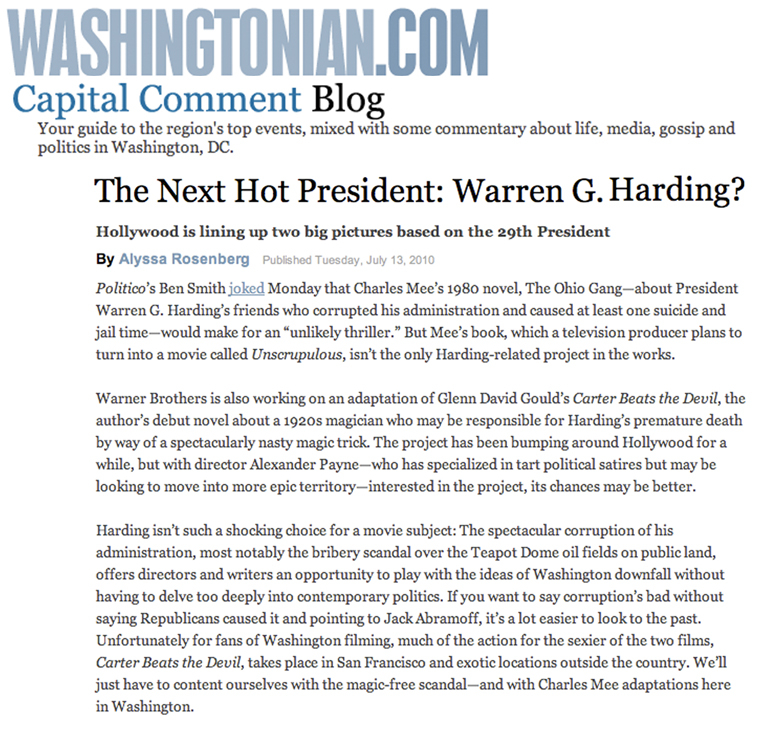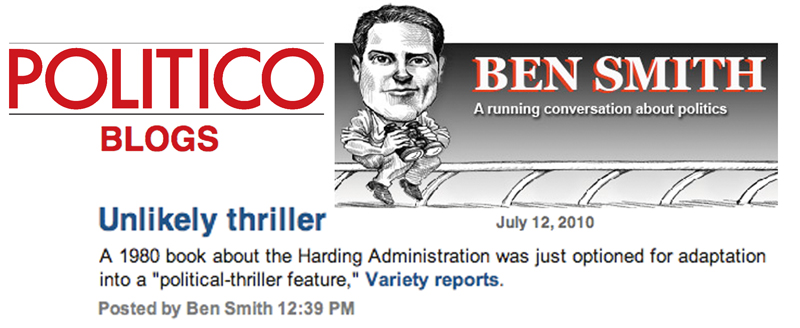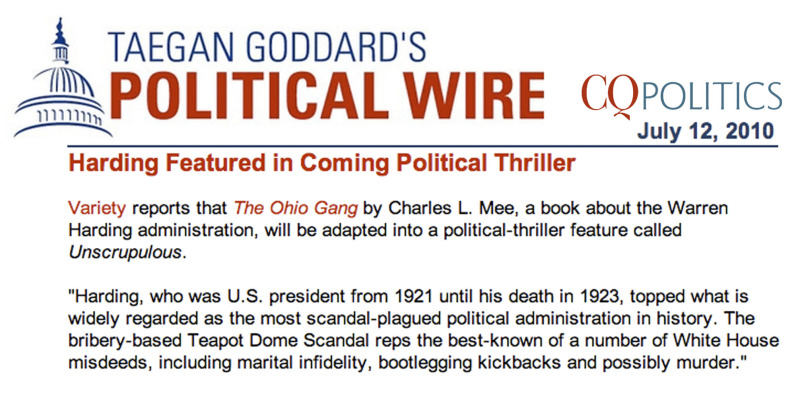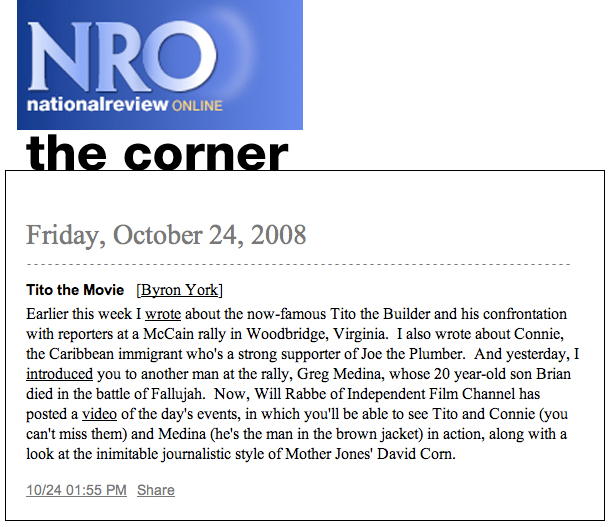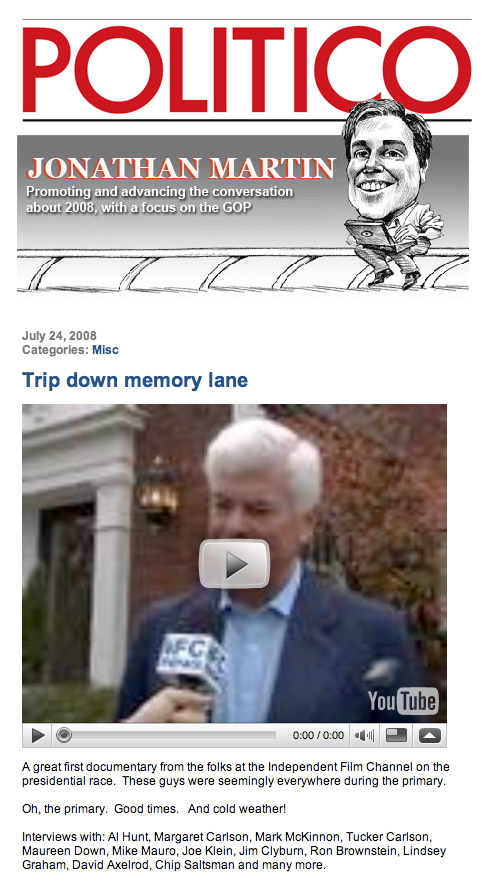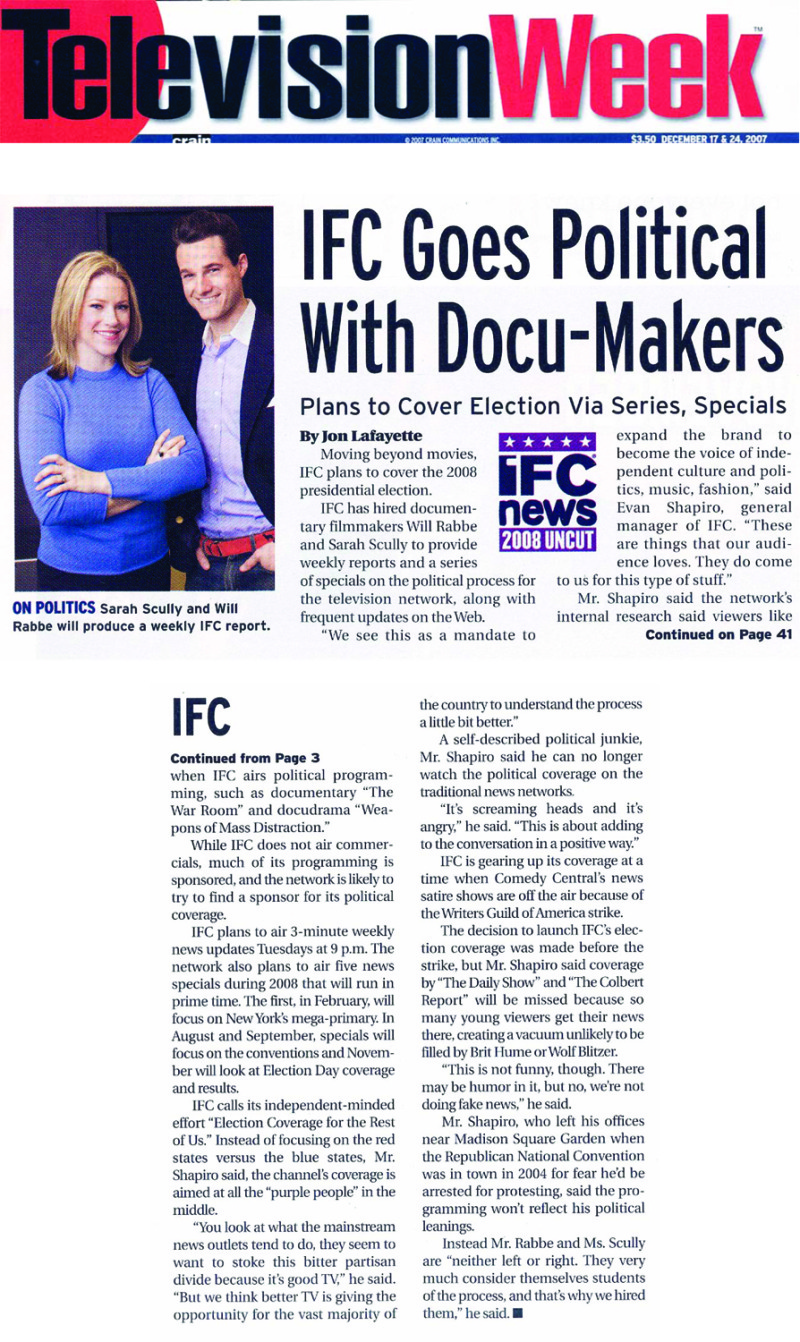Film Focuses on Kerry's Primary Run
By Tom Isler, August 19th, 2004
The cinema verite movement began in America when Robert Drew, a
photographer for Life magazine, took a few maverick filmmakers to
Wisconsin in 1960 to film John F. Kennedy’s battle with Hubert H.
Humphrey in the Wisconsin presidential primary.
The pilot project for the new school of filmmaking—literally “film
truth,” in which directors observe their subjects and allow the
stories to unfold before the camera lens—resulted in “Primary.” It
was a film that befuddled mainstream media outlets with its lengthy
sequences of non-synchronous sound, its blatant lack of interest in
conforming to mainstream news coverage, and its artful montages of
handheld shots: close-ups of Mr. Humphrey’s feet on the sidewalk, Mr.
Kennedy’s hand greeting an endless line of supporters, or Jackie
Kennedy nervously wringing her hands together behind her back.
That breakthrough film was part of the inspiration for a new
45-minute documentary, “Winning New Hampshire,” about another JFK,
John Forbes Kerry, in another key primary. The film was made by
William Rabbe, Aram Fischer and Mark Lynch.
Mr. Rabbe, a former part-time Southampton resident who attended a
filmmaking camp at the Ross School in East Hampton in 1999, was a
Kerry fan and senior film major at Boston University when he decided
to neglect his schoolwork in his final semester to embark on a
filmmaking career.
With fellow BU Terriers and a few high-end consumer-grade digital
cameras, Mr. Rabbe headed to New Hampshire to paint a portrait of the
pivotal primary from a distinctly youthful point of view.
“We knew we were never going to get a direct interview with the
candidate,” Mr. Rabbe said. “What we didn’t think we’d be able to do
was follow him so closely.”
In frigid New Hampshire, Mr. Rabbe found that he could get remarkably
close to Senator Kerry, if he elbowed his way past “pool”
videographers, cameramen whose footage is sold to multiple television
outlets.
But Mr. Rabbe also knew that he wouldn’t have the inside access that
D.A. Pennebaker and Chris Hegedus enjoyed when filming “The War
Room,” a film about Bill Clinton’s campaign for president in 1992,
which earned an Academy Award nomination.
And Mr. Rabbe’s camera equipment couldn’t match the image quality of
professional television cameras. So he decided to take cues from
“Primary” and make “Winning New Hampshire” distinctly anti-media in
approach, and also unlike the fly-on-the-wall filmmaking that made
“The War Room” so insightful.
“We knew that we had to give this youth and vibrance,” he said.
The film largely focuses on various pundits describing the historical
importance of the New Hampshire primary and Senator Kerry’s
surprising surge to victory.
But some of Mr. Rabbe’s best footage is alive with a youthful energy
and enthusiasm for big-time politics, and is only tangentially
related to the main subject of the film.
Mark Wrighton, a University of New Hampshire political science
professor, notes in an interview that it cost only $1,000 to get on
the primary ballot, and as a result there were 30 to 40 names listed
for both parties. Mr. Rabbe’s cameras located Vermin Supreme, a
bearded man wearing a boot on his head, who was eager to tell cameras
that he was a perfect moderate candidate: “The right seems to like
me, the left seems to like me.” Then he pledges to put all partisan
politics aside and make fun of all candidates equally.
Another interesting moment occurs when a Senator Kerry handler must
choose which select few media members can go inside one tiny venue
the candidate enters on one New Hampshire street. After surveying the
pack of cameramen, the campaign man chooses the pool cameramen to go
inside. This moment in the film is short but telling, demonstrating
Mr. Rabbe’s and his fellow filmmakers’ interest in cutting behind the
typical coverage of the primary.
“What the audience will take from this is two things,” Mr. Rabbe said
of his film. “First, the importance, obviously of the first primary
state. If you don’t come in first or second in New Hampshire, you’re
not going to run for president. Second, John Kerry came from nowhere
and won the nomination. He came out of the woodwork and in two weeks
turned it around and won by a landslide.”
Mr. Rabbe, who recently started working for documentary filmmaker
George Butler in New York—Mr. Butler is working on a film about
Senator Kerry’s experiences in Vietnam—said he’s sent “Winning New
Hampshire” to about 30 film festivals, including the Hamptons
International Film Festival, and has yet to hear back from most of
them.
He also is interested in promoting the film to high schools as a
potential teaching tool about American politics. He said the lessons
he’s learned from the film are personal.
“You can do anything if you put your mind to it,” he said,
referencing his own initiative as well as Senator Kerry’s. “Most
people throw away their first film. I wanted to come out with
something I could be proud of.”
As for Mr. Rabbe’s political persuasion, he said, “This is a very
tricky year, the trickiest election year in probably 25 years.” He
laughed. “You can deduce from that.”
Issue Date: Southampton Press 08/19/04



